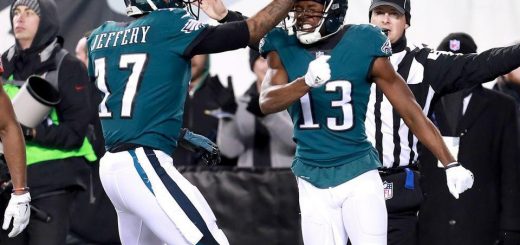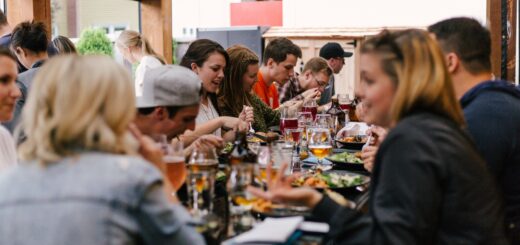Decolonizing MRU: What is colonization?

By Ricardo-Andres Garcia, Contributor
MRU hosted an event — #decolonizeMRU on Jan. 11. The event Facebook page said that the purpose of the event was to “decolonize MRU” and to support “Indigenization initiatives.”
The event also stated, “We are celebrating Indigenous resilience, survivance and presence. Colonization is an ongoing structure and not an event. Decolonization must be an ongoing community-wide effort through education about cultural and physical genocide.”
But, what does decolonizing really mean?
Canada as a ‘village’
Many Canadians show pride in being a citizen of land that is inclusive and peaceful. This mindset has been passed down to us as citizens long before this country had borders and was known as Turtle Island.
The word Canada is derived from the Iroquois word Kanata — which means ‘village’. This vast landmass, that reaches from the Atlantic to the Pacific ocean, is full of villages. These diverse communities were willing to welcome outsiders into their world in good faith.
Turtle Island was seen as a place of opportunity where people could come to and create something.
An important factor that was overlooked by these newcomers was that Canada was not a terra nullius.
“We have to realize and give validity to the fact that First Nations people were here and that they had their governance systems … They had their educational systems prior to contact with non-Indigenous people in this country. We had lovely ways of functioning,” says Audra Foggin, an assistant professor at MRU.
The effects of colonization
The fact is that settlers came to Turtle Island and not only brought new ideas but these ideas were imposed on the Indigenous people of this land. This brought forth traumas and disconnect to the hosts of the land.
“Our ways of being in a ceremony, of regalia and our ways practicing spirituality got ripped from us through genocide. Genocide of spirit, culture and identity,” says Desiree Peigan, a social work student at MRU.
This harm was committed through generations of systemic oppression. Discrimination against the Indigenous peoples started long ago.
In 1876, the Indian Act was put in place by the Government of Canada — it was an act of genocide, which led to colonial Residential Schools, The Sixties Scoop and child welfare.
The Indian Act was put into action in order to assimilate the Indigenous people of Canada. It constantly aimed to take away their status. Some traditional practices were even outlawed.
Foggin says, “not just structural systemic removal of children from their Indigenous homes created a loss of culture, loss of biological family, loss of language … For me, my whole process has been; how do I start to reclaim that and I’m almost 50 years old.” Foggin has a background in social work and works on inclusive social work education.
“When I think about it, I’m just in the beginning stages of reclaiming and understanding my cultural identity and my biological family — who they are and what it means to be an Indigenous person in Canada, having lost all that,” says Foggin.
Peigan, on top of being a student, is currently involved in Indigenization of the community as a cultural and spiritual worker. She says that “growing up I became colonized within foster care. I presented as Canadian and that was because it was a survival tactic. But coming back to identifying who I am is so important to me — I am First Nation, I am Dene, I am Cree.”
Today, as Canadians, it is important to know our history in order to mend the damages brought on by colonization and in turn recuperate some of this land’s most sacred traditions and ways of life.
Coming together
“To make that shift it has to be a combination of both non-Indigenous and Indigenous people coming together to share that responsibility,” says Foggin.
This healing process begins with awareness. Canadians should know that there are systems that need to be reformed and in turn, take action.
“I don’t think that we can very rightly say. Well, I just don’t know where to begin,” says Foggin. “There are all kinds of resources available. I mean there’s Colonized Classrooms by Sheila Cote-Meek. There’s Marie Battiste’s Decolonizing Education. There are great books out there. There are so many resources and I think for Indigenous people we come to a sense of a term that’s called ‘race exhaustion’.”
‘Race exhaustion’ refers to the responsibility for decolonization falling solely on the shoulders of Indigenous people. Foggin says, “not only is it exhausting, I think there has to be equanimity in this nation when we start to think about our responsibility as individuals. We need to think about what is my piece in this.”
Foggin and Peigan agree that a unified Canada working together for real change to occur is the key factor in this process of healing.
“As Indigenous people in Canada we’re still in that process, it’s still going on to this day and I’m still part of that. Even though I’m involved in academia, I think that the process of so-called ‘decolonization’ is so important because we need to help have this process happen,” says Foggin.
“Not only is it going to heal Indigenous people it will also make the nation stronger as a whole because when we look at inclusivity understanding our identity not just as Indigenous people but anyone in the nation, it’s important. We need to know who we are to have some pride in our process of selfhood.”





